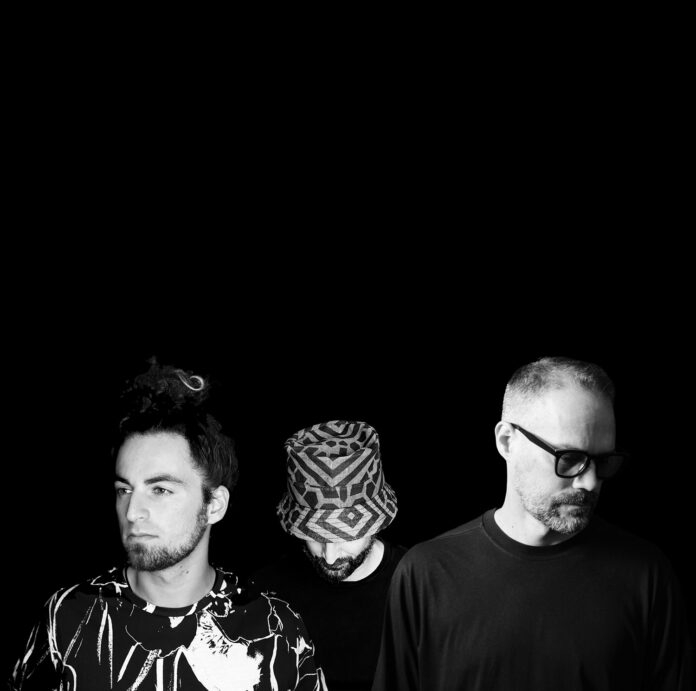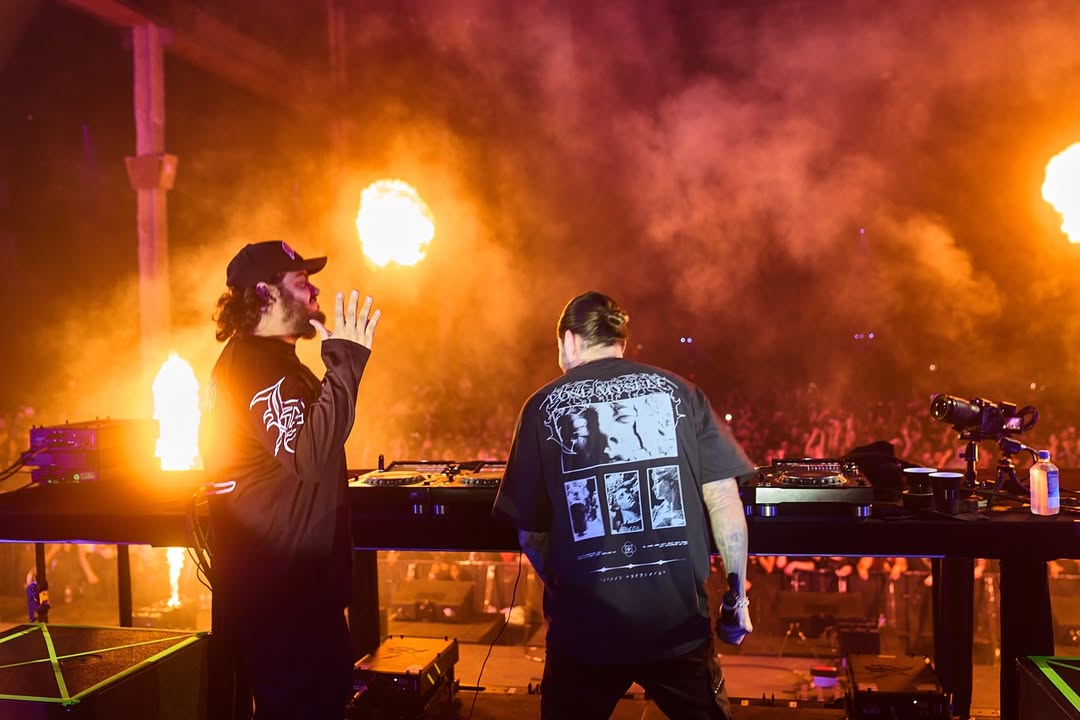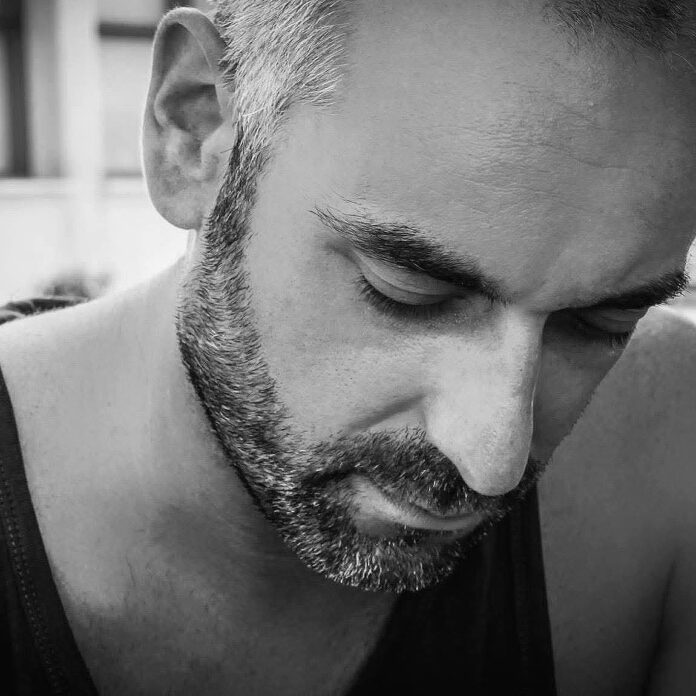Underneath the warm sun that hangs over Brussels, a tiny three-by-three metre shack pumps out tunes day and night to a dancing crowd of onlookers. LeFtO is at the controls of Kiosk Radio, a perfectly placed wooden hut in the centre of Parc De Bruxelles. “Good day to you all outside the Kiosk, live from the park. Thank you for coming through,” says the soothing voice of LeFtO. The chatroom pings with hundreds of messages from around the globe as the crowds gradually tune in for another session out of leftfield from the Belgian music connoisseur.
LeFtO - real name Stephane Lallemand - fuels a hub of listeners with an appetite for new sounds, week in, week out. Becoming a household name at Kiosk Radio, as well as mainstay station Studio Brussel, LeFtO always has his finger on the pulse. A quick peek at the DJ’s Mixcloud reveals a hearty range of genres - with everything from house to rap to jazz and more. Fusing sounds from Belgium’s melting pot of musical talent with his relentless passion for new sounds, LeFtO has gone on to work with major names and labels including Gilles Peterson’s Brownswood Recordings, Blue Note, !K7, and Stones Throw.
Read this next: The 10 best pre-90s EBM & new beat tracks
Cutting his teeth on jazz and new beat, a genre that moulded the shape of electronic music in 80s Belgium, LeFtO formed his early tastemaker know-how via his dad’s record collection. “My father mostly played jazz at home, he had a serious collection which I still own myself. I was probably 14 years old when I asked him for money to buy some records,” he says. “With a certain pride, most of what I liked was made in Belgium”. More a selector than anything else, LeFtO continues Belgium’s tireless musical legacy through his extensive palate, brimming with flavour.
Check out our Q&A with LeFtO and listen to an exclusive mix from the DJ below.
How has the Belgian scene influenced your music taste over the years?
There’s been many influences over the years, but the Belgian scene is widely known for its electronic music and huge parties like I Love Techno and festivals like Tomorrowland, but they’ve never been a reference for me. I was always looking for the underground scenes as their cultures were a lot more interesting to me. So over the years, I’ve been influenced by alternative music and all the parties you can find around the country; from rap shows to great house parties with international names and local heroes. It’s amazing to have a government that funds organisations promoting alternative music (and arts in general), it’s essential I think. To be able to watch installations with electronic music playing in a village far away from motorways is still something that I find very Belgian. The culture is everywhere, you just have to know and look for it!
You’ve curated a night in Belgium’s northern city of Ghent, what’s your involvement there?
I’ve been curating festivals and nights since the early 2000s - nights in Brussels, Ghent and Antwerp and a stage at the legendary Dour Festival in the south of Belgium. I always wanted to give more to my crowd than a musical selection, so being able to actually invite the artists that I play is something very special. Throughout the years I can say that I’ve brought some of the best artists to the stage in Belgium, from Flying Lotus’ first show in Europe, Robert Glasper, Floating Points, Theo Parrish, Machinedrum. I mean, the list is endless after 20 years, and I'm still continuing. I’m lucky to have people who believe in my musical taste and my following, so they’re always ready to help and offer a venue.
Read this next: "A total experience": How Fuse is transforming Brussels into a techno hotspot
How did the idea for your very own stage at Dour Festival come about and develop?
The curation came naturally over the years. From playing the festival to being a helping hand on the line-up, and finally curating a stage. It was the promoter back then who offered me that chance, and since then we've managed to create amazing, fresh line-ups - sometimes ahead of its time - and that’s when I come in.
What has the scene looked like in Belgium since the pandemic began?
We’ve been lucky enough to move freely through most of the the pandemic. Most promoters were trying to find a way to keep music culture alive. There have been initiatives to help young starving artists as well, and the government helped out a lot of musicians. I was lucky to have my weekly Kiosk Radio show which broadcasts from a wooden shack in a park, people gathered around there every weekend! So, I can say that I always played for a crowd even during the pandemic, although it was tough at times to keep it safe for the audience. We’ve had several police interventions, sometimes for no reason at all.
Read this next: How to help clubs reopen safely and for the long haul
With clubs still shut across a lot of the globe due to the pandemic, how do you see the nightlife industry looking in the coming years?
I think we’ll get back to a certain normality very soon. This pandemic hasn’t lasted long enough to destabilise indoor parties, but it might have impacted the clubs. Some clubs closed down, but I hear others are about to open up, so I see some positive perspectives for the coming years. The only thing I really wish for in the nightlife industry is a recognition of the importance of it in cities. The money that a city generates as a result of nightlife, clubbing, or just that culture in general, is not to be overseen. It’s major. In Belgium, it’s even more than the travel industry.
As a radio host, have you noticed an influx of artists and producers moving to online platforms and radio stations to make mixes for their audiences over the past 15 months? If so, what are your thoughts on this?
I haven’t really seen a big change in that sector to be honest. I’ve seen movements in the way of making money for artists and labels like Patreon, for example, which gives artists a platform to earn a living by giving exclusive material to those who subscribe to their channel. Mixcloud has done the same over the years, so I see something changing there.
Radio felt like one of the few ways to maintain a shared communal experience of music through lockdown. How important do you think radio stations have become for cultivating communities and scenes?
My experience has been exactly that, it’s been a shared communal experience through lockdown. Something was happening around the station, the energy of people seeing each other and moving to the same beats was surreal at times, as others would stay inside to avoid the virus. When police came to try and close the station for whatever reason, I relayed everything that was happening on the radio and people could react via the chat. It was a special experience for the online listener. Local radio stations and their chatrooms are becoming the new pubs where people can talk about DJ sets they’ve heard, or come up with new ideas. It’s amazing to see the same names every week in the chat room, most of them are now virtual friends and will probably introduce themselves with their online name when they meet in real life. So I really think that radio stations are becoming the centre and the heartbeat for a local scene.
Read this next: An oral history of NTS Radio
As a tastemaker, where do you take influence from now when compiling mixes, club sets and radio shows?
I’m constantly looking for new music through mixes, articles I read, documentaries, YouTube channels, and of course, a lot of record shops and the endless promo mails I receive daily. It’s essential for me to promote new music, young talented individuals, but also timeless music in any of the genres I like. It’s hard to understand for someone who’s solely into one genre that I could be as relevant in one taste, but not in the other. I try to give relevant shows every week, same for my club sets and for the compilations I put out. It’s essential to support fresh talent.
How did you come to make compilations for BBE, Universal Music and Gilles Peterson’s Brownswood Recordings?
I’ve always been approached by the labels for the most part - for Brownswood Recordings, it was Gilles Peterson who asked to curate a compilation with my good friend Simbad. Labels know I have many contacts, I know a lot of artists from the new generations and the old generations. There’s nothing more normal to me than compiling, it’s a way to introduce artists to a wider audience and that’s my main job.
Read this next: Review: "A religious experience" - the return of clubbing in London
You’re also hugely involved in the film world, what made you pick up the camera and start making videos of your experiences?
Music and film are really intertwined, a good film is nothing without a good soundtrack, and I really like to have a camera in hand. The reason I started to film my travels was for my friends; I wanted to share my experiences with them and let them see what I was seeing. The passion evolved into something much bigger: creating documentaries for national TV in Belgium, and a series called “Lefto In Transit” taking people on a trip through my favourite musical scenes around the world. It aired for 6 weeks on cable TV.
Can you tell us about your In Session mix?
The mix is something I wouldn’t record too often, it’s a straight forward mix of house into techno and everything in between. While recording, I was thinking of a highway at night and red fire clouds at the end, that’s how the mix evolves, it’s like speeding towards hell for some reason.
Catch LeFtO broadcast every Sunday on Kiosk Radio at 6:PM CET
Gemma Ross is Mixmag's Digital Intern, follow her on Twitter
Tracklist:
LDLDN - Make Time
DJ Schwa & Name Does Not Matter - Obsolete
Destroy - Dirt
Superabundance - Antimatter Circus
Ben Hixon & Stefan Ringer - Tom Track 01
Marc Brauner - Automatic
Luca Piermattei - Delay Effect
Black Rave Culture - The Funky Dub
Anthony Rother - Escape From Sector 8
Bloody Mary - Acetic
WTCHCRFT - All D Time On My Mind (Elisa Bee Remix)
Ejeca - Free From
LB aka LABAT - Oh Shit


